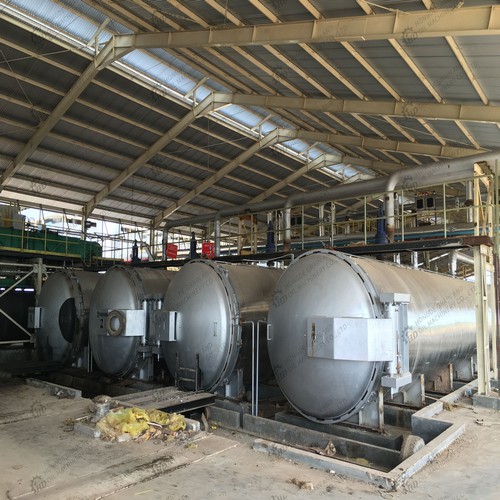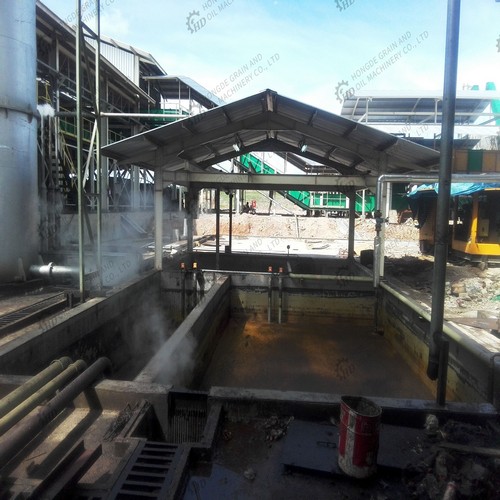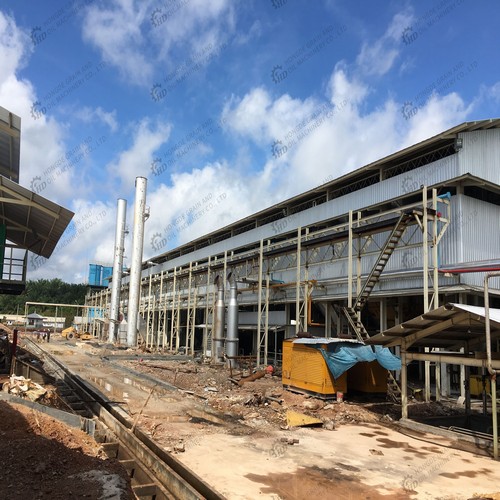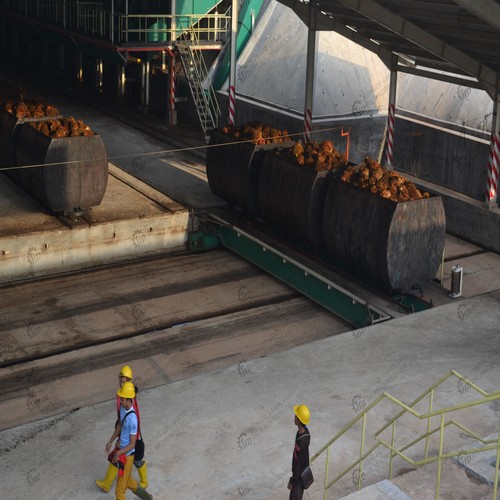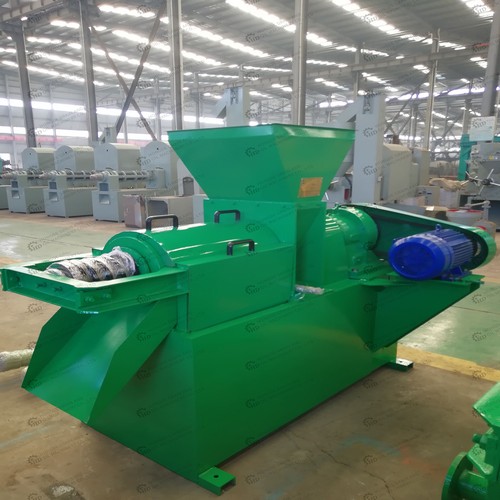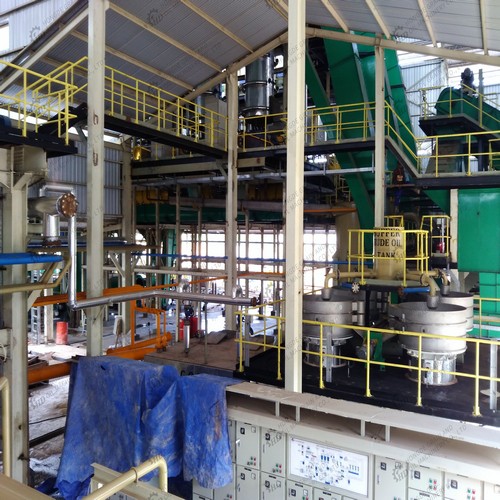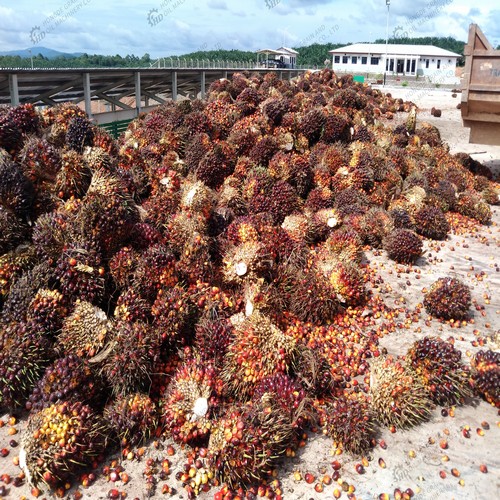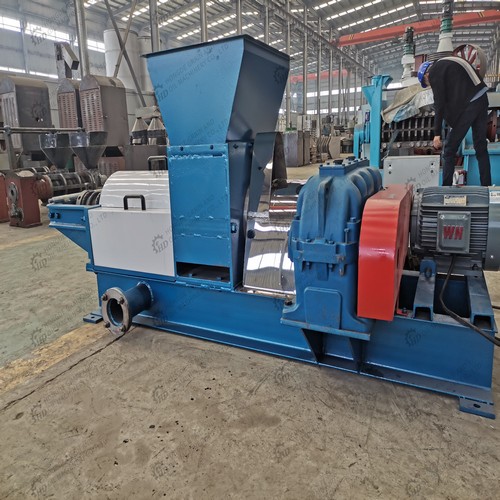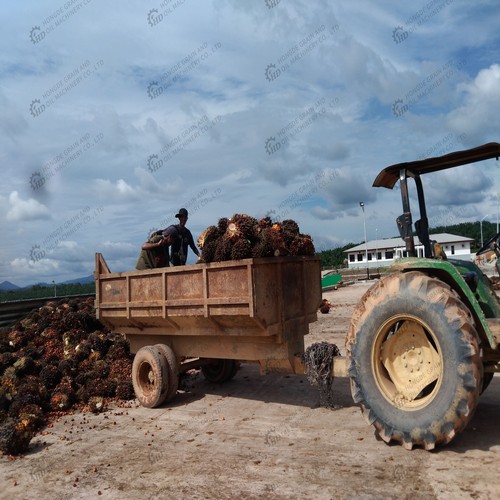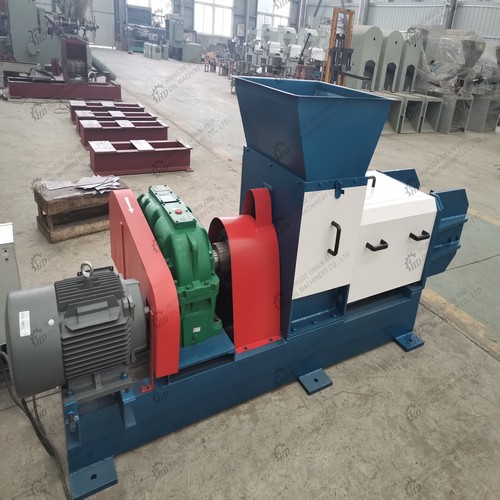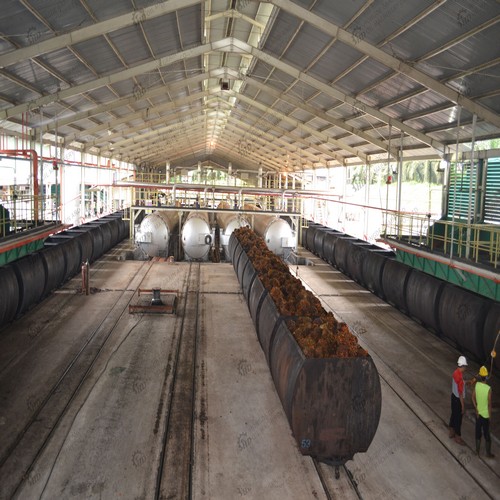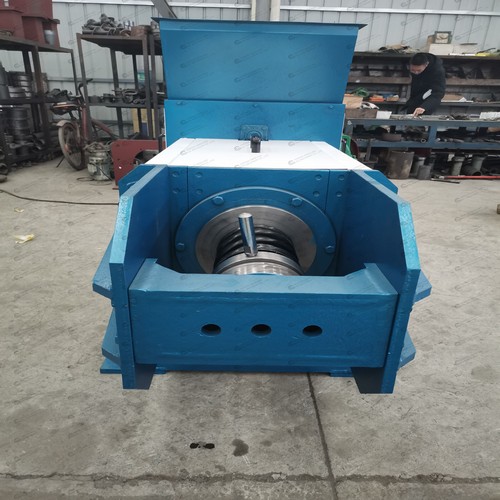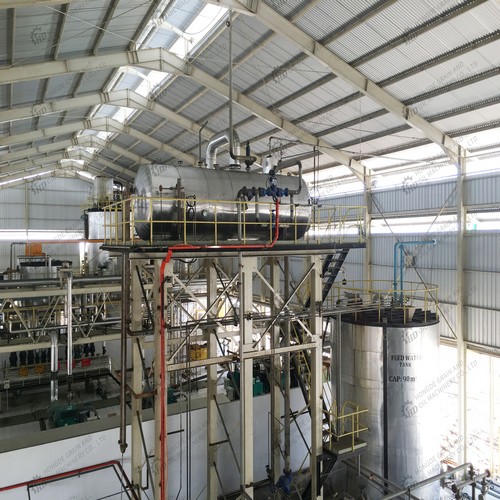Palm oil giants unite to tackle human rights challenges
Palm oil giants unite to tackle human rights challenges in Indonesia ... In West Kalimantan, smaller palm oil plantations are developed on existing community farmland and the workforce is mainly made up of farmers who juggle several jobs, including their own fishing or farming business. ...
In developing the plantations, detailed independent third-party assessments were conducted on selected lands to assess the suitability from an agricultural, biodiversity and social perspective in order to meet the requirements of our Sustainable Palm Oil Policy. Olam identified and set aside 50 percent of our concession as conservation area.
Palm Oil Controversies, Indigenous Peoples' Rights
Land rights is the focus of "Greasy Palms: The Impacts of Indonesia's Palm Oil Plantations," (below) a documentary produced by the Paradigm Shift Project. Through interviews with residents, including women, the filmmakers document the effects new oil palm developments have had on the indigenous Pergula'an and other local communities of Indonesia.
The palm oil plantations powering communities and tackling climate change ... with Indonesia’s state-owned grid to power a nearby community. The joint venture began in April this year and will ...
Palm oil - RB
The responsible use of palm oil is an issue that receives a lot of attention. We have taken significant steps to increase transparency in our palm oil supply chains and to carefully invest in initiatives that bring positive change at scale and on a local community level.
The palm oil plantations powering communities and tackling climate change - Palm oil mills are generating electricity using waste methane to the benefit of local communities and company profits Sponsored by: RSPO By Oliver Milman Tuesday 15 September 2015 14.15 BST; The rapid expansion of palm oil cultivation has resulted in the creation of ...
Against the tide: tackling palm oil in Indonesia | Friends
Of 130 million hectares of forest area in this vast island nation, 57 million hectares are already licensed to timber, pulp and paper and palm oil companies. Halting the expansion of palm oil and to giving community land back to communities will only be achieved through deep structural changes in the way the country manages its land and ...
Palm oil development can undermine the rights of indigenous communities to convert or not convert their land, and there is evidence of human rights abuse within palm oil plantations and mills. Nonetheless we recognise the enormous contribution palm oil can make to social development and support solutions that seek to find a balance between ...
On the Journey to Sustainable Palm Oil | Rainforest
Palm oil is used widely because of its versatility, leading to a current world-wide annual production of around 70 million tons. It comes from the fruit of the oil palm, growing mainly in the tropical belt of Southeast Asia, Latin America and Africa, with the top three palm oil-producing countries being Indonesia, Malaysia and Thailand.
In West Kalimantan, smaller palm oil plantations are developed on existing community farmland and the workforce is mainly made up of farmers who juggle several jobs, including their own fishing or farming business. As such, most workers carry out casual work by choice,...
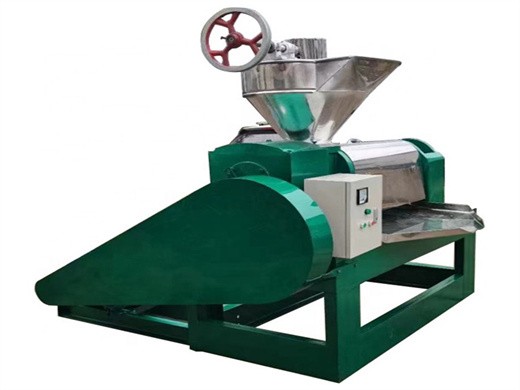
Palm Plantations
In developing the plantations, detailed independent third-party assessments were conducted on selected lands to assess the suitability from an agricultural, biodiversity and social perspective in order to meet the requirements of our Sustainable Palm Oil Policy. Olam identified and set aside 50 percent of our concession as conservation area.
GET PRICE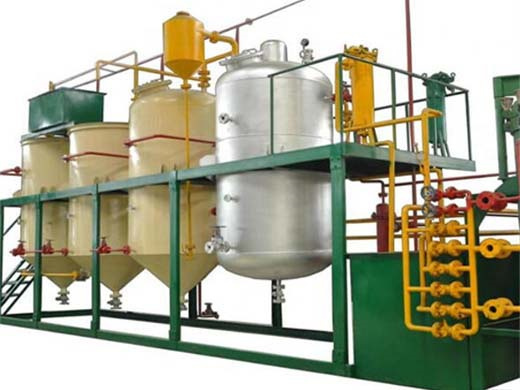
Palm Oil Controversies, Indigenous Peoples' Rights
Land rights is the focus of "Greasy Palms: The Impacts of Indonesia's Palm Oil Plantations," (below) a documentary produced by the Paradigm Shift Project. Through interviews with residents, including women, the filmmakers document the effects new oil palm developments have had on the indigenous Pergula'an and other local communities of Indonesia.
GET PRICE
Palm oil | Greenpeace Australia Pacific
Ending dirty palm oil. Every hour up to 300 football fields of Indonesian rainforest are destroyed to make room for palm oil plantations. Greenpeace is fighting to stop the sourcing of unethical “dirty palm oil” to protect the homes of indigenous peoples and endangered species.
GET PRICE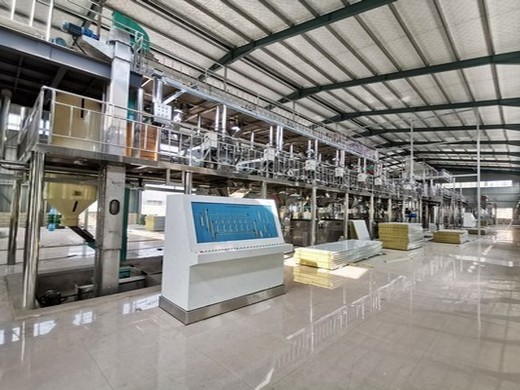
Palm oil and deforestation
As of 2014, Nigeria was the world’s fifth-largest producer of palm oil, with 930,000 metric tonnes. 10 In the same year the area of palm oil harvested in Africa reached roughly 4m ha, greater than the total for Malaysia and nearly half that of Indonesia. 11. The environmental implications of this are clear.
GET PRICE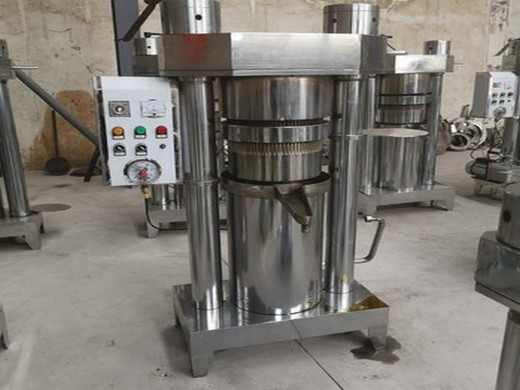
Challenges in the production of palm oil
Plantation workers and their families frequently live on the palm oil plantations, with no contact with life in the outside world. This makes it particularly important to ensure that, for example, children living on the plantations have access to education and the workers receive a minimum wage.
GET PRICE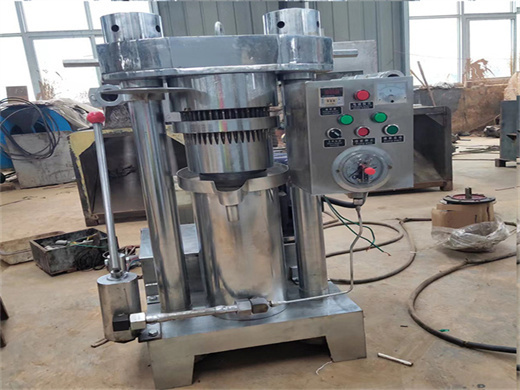
On the Journey to Sustainable Palm Oil | Rainforest
Numerous reports have also shown significant human impacts, including the displacement of indigenous people and local communities from the areas transformed into oil palm plantations, forced labor, and poverty of small oil palm farmers. How we tackle the challenges in palm oil. Systemic challenges in the palm oil sector require urgent attention ...
GET PRICE
Most Palm Oil Companies Can’t Fully Trace Supplies, Survey
Most palm oil producers, processors and traders can’t fully trace where their supplies came from and should do more to check that what they buy meets their sustainability targets, according to ...
GET PRICE
It's Official: Most Indonesian Palm Oil Plantations Broke
Indonesia, the world’s largest palm oil producer, wants to reshape the industry after the state auditor found that about 81% of plantations broke various state regulations.
GET PRICE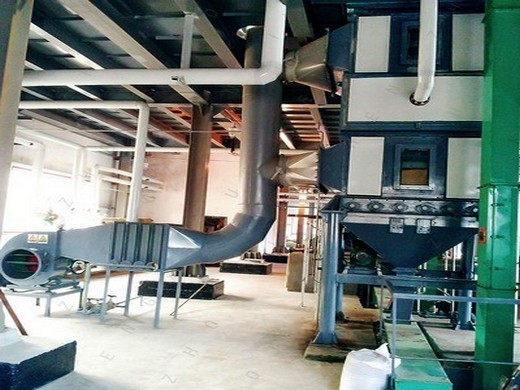
Addressing social conflict and equity in oil palm
Such conflict mainly arises when corporations develop oil palm plantations on customary land without fulfilling promises of economic development or sharing the benefits with local communities. An organization trying to tackle these issues is the Roundtable on Sustainable Palm Oil (RSPO), a global multi-stakeholder platform initiated by ...
GET PRICE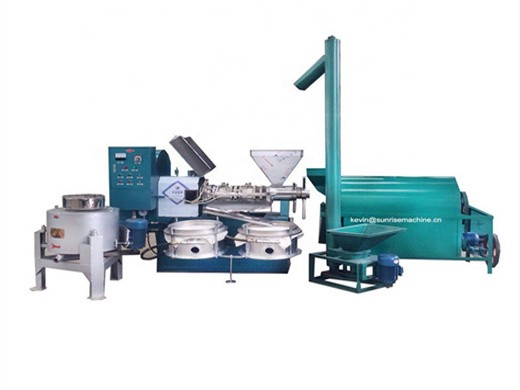
We Need to Talk About Palm Oil – Mother Jones
Palm oil is also found in biodiesel used to power cars (more than 50 percent of the European Union’s palm oil consumption in 2024 reportedly went to this purpose).
GET PRICE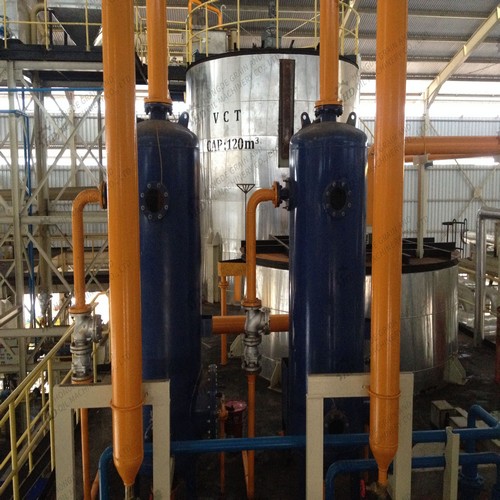
Everything you need to know about palm oil - Ecotricity
But the current demand for palm oil has led to unsustainable practices that negatively impact the environment and communities local to the palm. Many smallholders struggle to keep up with the demand that corporate owned plantations are able to supply.
GET PRICE
Palm oil and deforestation
Palm oil is the most commonly consumed vegetable oil in the world and can be found in around half of the packaged goods in supermarkets globally, ranging from staples (such as bread and noodles) via cosmetics (shampoo and lipsticks) to luxuries (ice cream and dessert). Compared with other vegetable oils, it is an efficient and cost-effective product that requires roughly half the amount of ...
GET PRICE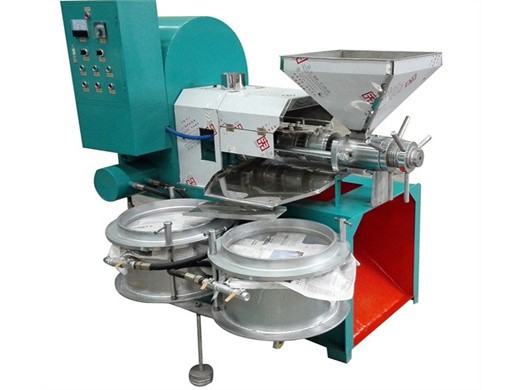
On the Journey to Sustainable Palm Oil | Rainforest
Numerous reports have also shown significant human impacts, including the displacement of indigenous people and local communities from the areas transformed into oil palm plantations, forced labor, and poverty of small oil palm farmers. How we tackle the challenges in palm oil. Systemic challenges in the palm oil sector require urgent attention.
GET PRICE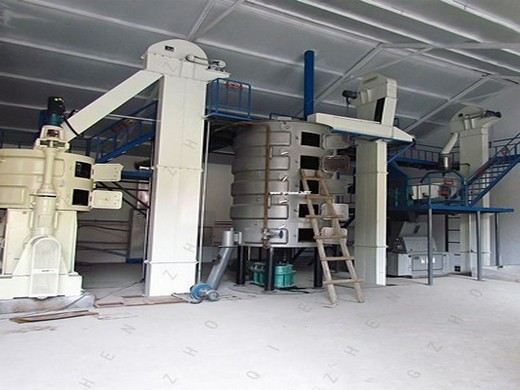
The CEO Trying to Fix Palm Oil Says He’s No Orangutan
Carl Bek-Nielsen, who’s about to give a tour of the palm oil plantations he runs in Malaysia, is reflecting on a story by the New York Times earlier this year about an orangutan that was shot 74 ...
GET PRICE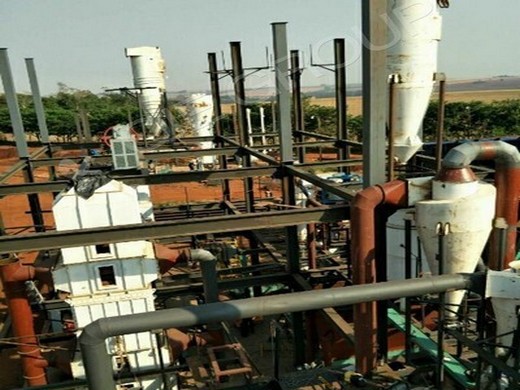
Palm Oil | Industries | WWF
Community leaders in Papua are inspiring people to support the approach that local communities, WWF, and others are starting to use to save Papua’s forests—which are some of the largest remaining intact forests in Southeast Asia, but are increasingly at risk of being destroyed to make room for palm oil plantations, as well as mining and industrial logging operations.
GET PRICE
Palm oil, pineapples threaten Southeast Asia's indigenous
Palm oil plantations in Indonesia and commercial fruit orchards in the Nigeria have uprooted indigenous people and rural communities from their land, despite laws put in place to protect them, human rights groups said. Powerful businesses, corrupt officials and paramilitary groups are fuelling violence
GET PRICE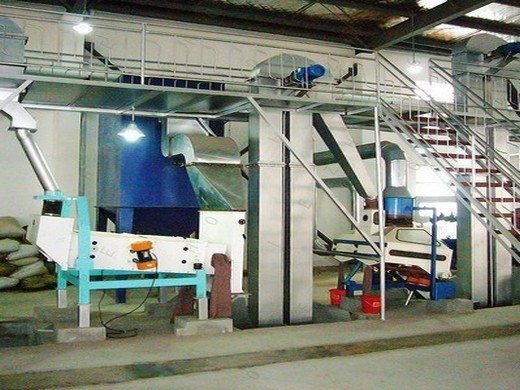
PZ Wilmar - Sustainable plantations
Sustainable plantations Investing in the future of local communities and the environment We are committed to revitalising unproductive palm oil plantations and developing new ones, helping to meet Nigeria palm oil requirements in line with the Government’s Agricultural Transformation Agenda.
GET PRICE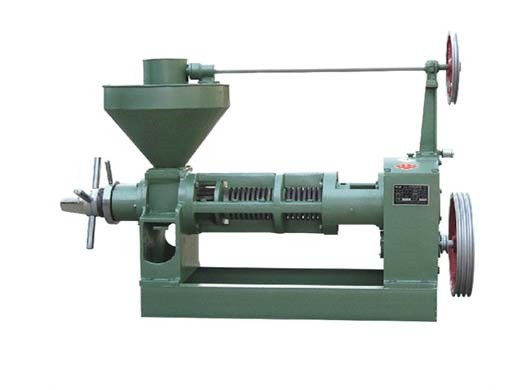
Palm oil | Greenpeace Australia Pacific
Palm oil is a type of vegetable oil that comes from the fruits in a few species of palm trees. In fact, this fruit produces two kinds of oil: oil from the pulp, typically used in food like chocolate or breakfast cereals, and oil from the seed which is often used in soap and shampoo.
GET PRICE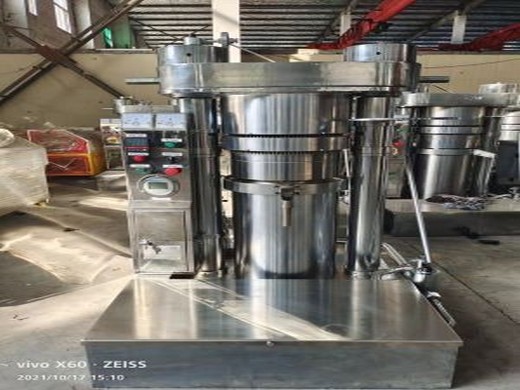
8 things to know about palm oil | WWF
We’ve all heard about the devastating impact palm oil plantations are having on orang-utans. Here are eight things you should know about palm oil so you can make your own decisions about this ubiquitous ingredient with a bad reputation and the steps you can take to make a difference.
GET PRICE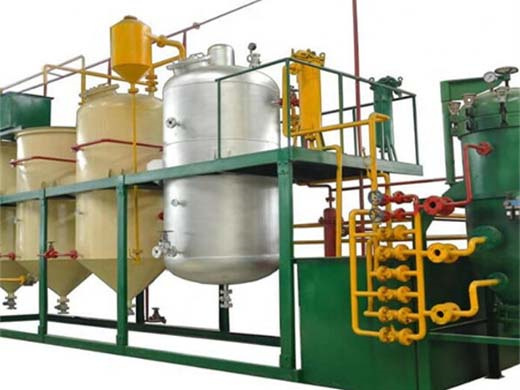
Dodgy science and corporate concessions for clean palm oil
It’s an argument the Indonesian government and palm oil lobby have made for years: that oil palm plantations sequester and store many times the amount of carbon dioxide as natural forests, and that therefore razing those forests and planting oil palms is a positive way to fight climate change.
GET PRICE